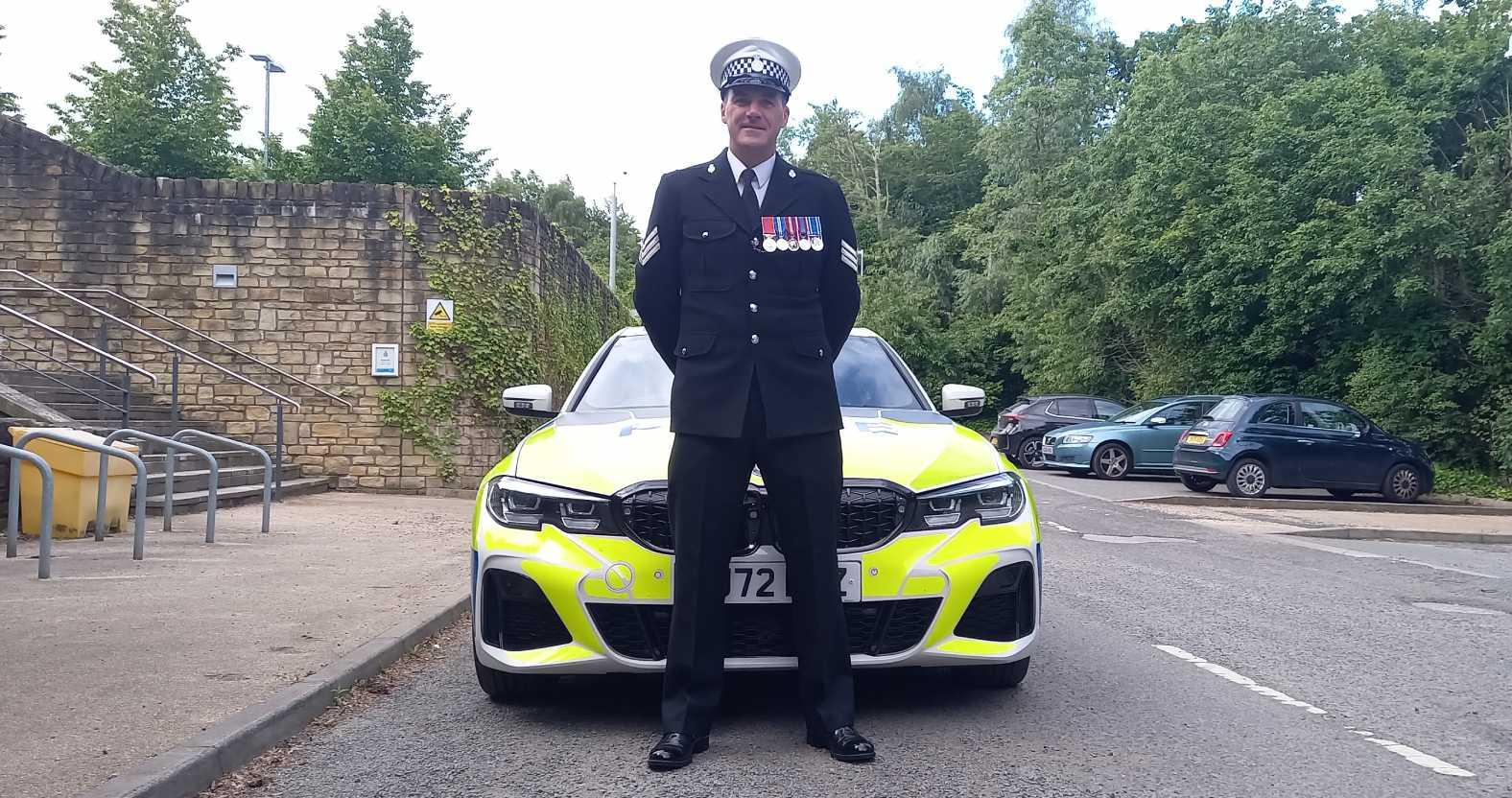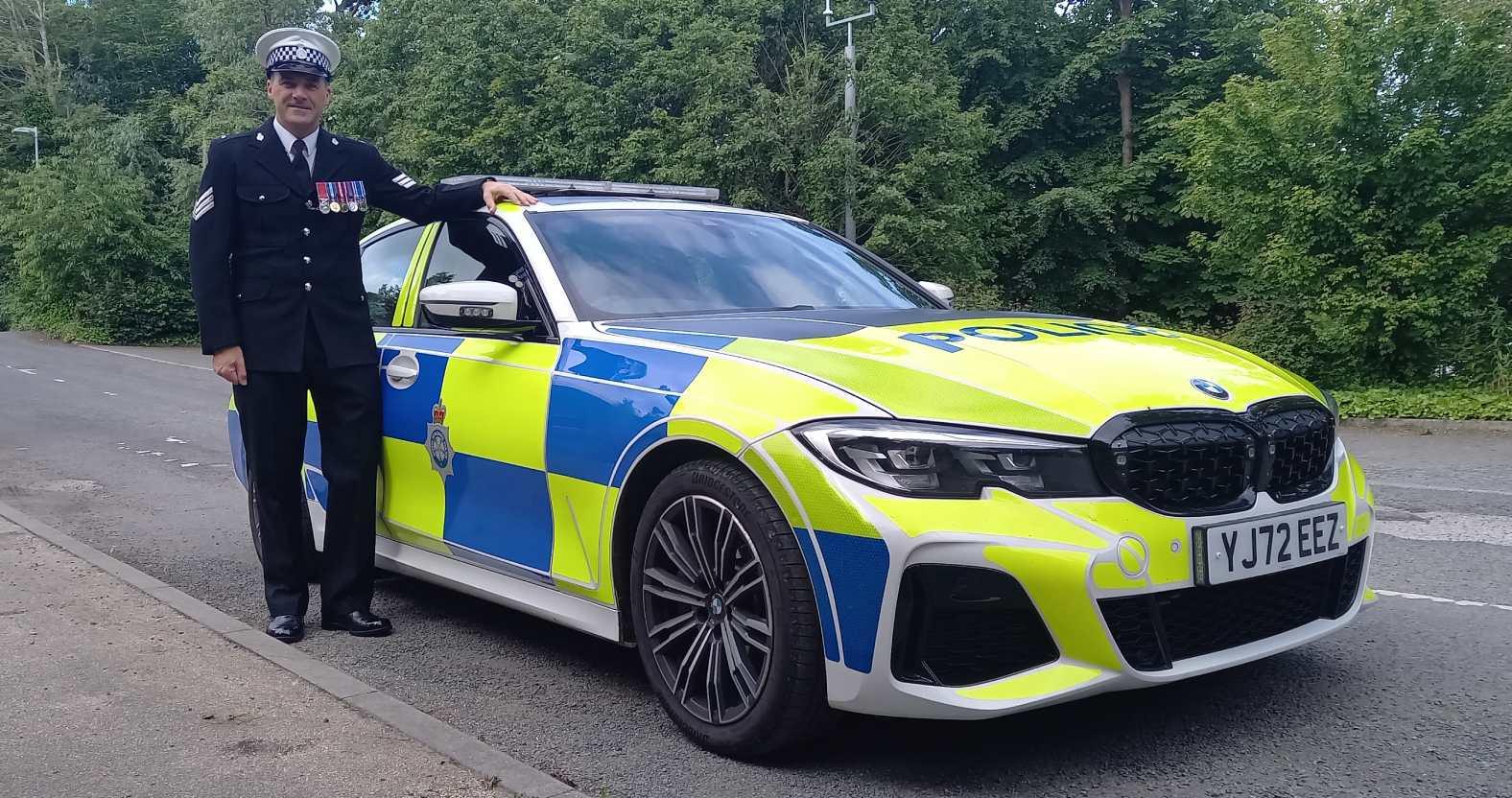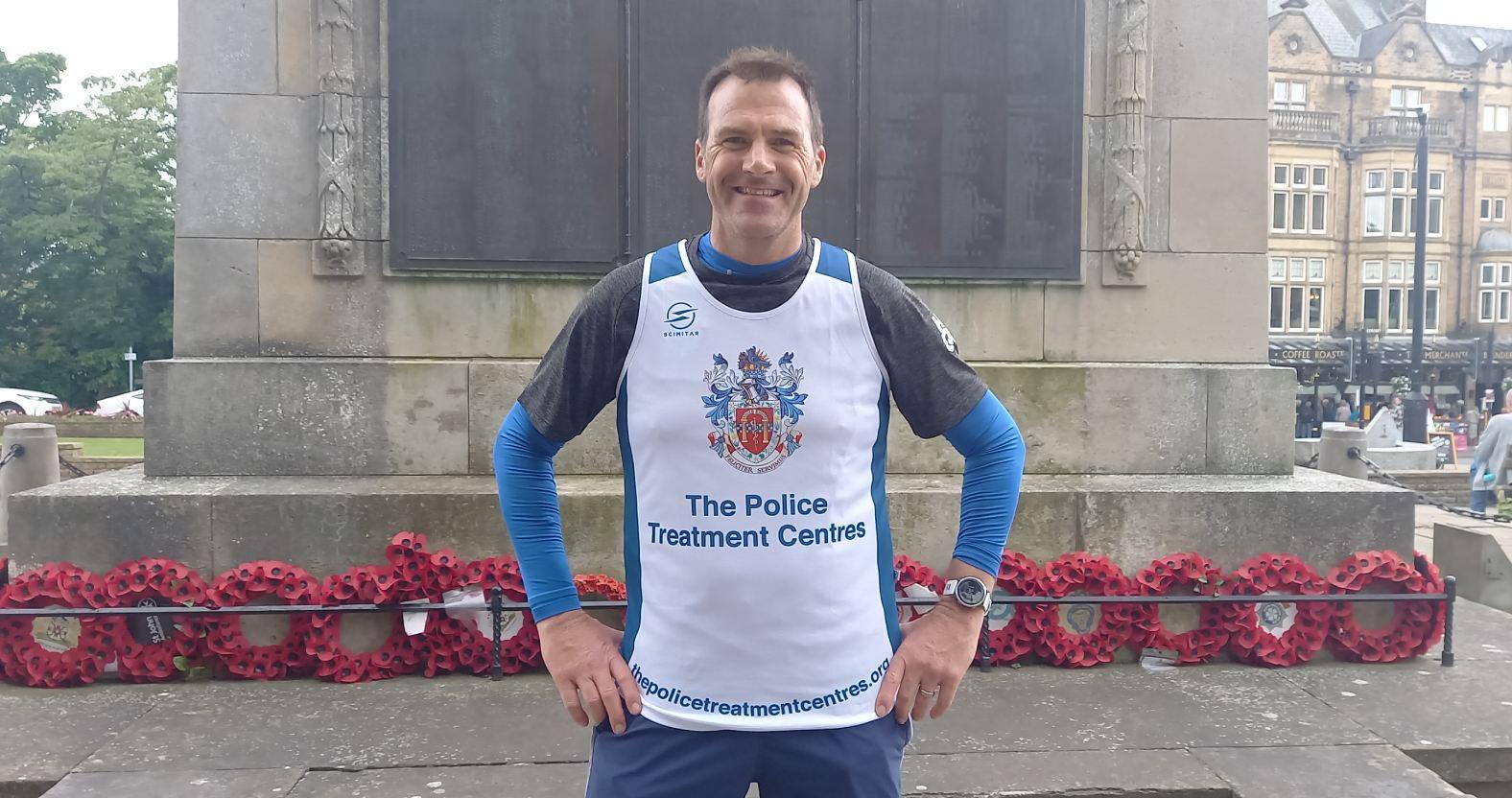23
Jun 2024
Sgt Paul Cording on his career – and his future beyond the police

North Yorkshire Police bade farewell to one of its best-known and most highly regarded officers on Wednesday, when Sergeant Paul Cording retired from the force after nearly 24 years of service.
In recent years, the veteran traffic officer has been a tireless campaigner for better road safety, and has inspired people across the district and beyond with his epic fundraising activities. Just last week, he completed a gruelling 24-hour triple marathon, raising more than £6,200 for the UK's two Police Treatment Centres, in Harrogate and Scotland.
He's a prolific tweeter, with more than 16,000 followers on Twitter/X, and has also become a familiar face well beyond North Yorkshire, after appearing on Channel 5's Traffic Cops.
When the Stray Ferret met up with him on his very last shift, he told us more about his background, his work, and his plans for the future.
Tell us about your life before the police.
I was born in Cheshire. My parents were both in the Royal Air Force, so we moved a lot. We lived in Suffolk, Cyprus, Hampshire, Devon and Sardinia, so I had a very varied upbringing.
I went to a couple of overseas schools too, which was fantastic. When I was about six or seven and we lived in Sardinia, I could speak fluent Italian, but now I could probably only order two beers!
You served for 10 years in the RAF. What did you do?
I had what we call the best rank in the Air Force – the bathtaps of power – which was a junior technician. It was fairly well paid with absolutely no responsibility. I worked on helicopters and transport aircraft, and finished off on fast jets at RAF Leeming, which is why I ended up in North Yorkshire.
But there were a lot of deployments back then – I was away for 12 months of the two years that I was at Leeming – and I wanted a bit of stability, so I left.
But I also really enjoy the camaraderie of being part of a uniformed team, so joining North Yorkshire Police was a natural progression. That said, it's not something that I dreamed of doing as a kid.
What attracted you to the police?
I think it's the camaraderie. I know people in the police – even more so probably, people in the Air Force I served with that I haven't spoken to for 10 years – who would be there on my doorstep if I ever had a problem and asked them to help. In the police and in the military, you make friends for life and you can rely on them.
What have you most enjoyed about your career in the police?
Most people join the police to help people and make a difference, and that's what I've tried to do from day one. All I can do is be the best version of myself, and certainly at road traffic collisions when people are at their lowest ebb, that's where I get my drive to do my very best for people.
Why did you specialise in traffic?
Well, it's a really weird thing, because I didn't have an interest in roads policing. I did response and neighbourhood policing, and then in 2007 I went across to Skipton as a sergeant on the neighbourhood team. It was during that time that I saw the beautiful roads around the Craven district, and also, unfortunately, some of the aftermath of when things that have gone wrong. That ignited a passion to try and make a difference.
I've always liked driving, and to get to drive really nice cars was a bonus.

Sgt Paul Cording
What's been the worst part?
We call it the Longest Walk, when you have to go and knock on somebody's door to deliver that devastating news that a loved one has lost their life. There's nothing in the world that can prepare you for that, but you know your interaction with them will stay with them for the rest of their lives.
So it's a very challenging situation, but you need to get it right. It can be very rewarding, because we're here to help people at their lowest ebb.
Are there any times of the year where you get more accidents than others?
We don't have accidents – we have collisions! It varies. We obviously push Christmas and summer drink and drug drive campaigns, but we also follow the National Police Chiefs' Council road safety calendar. So whilst we do things all year round, we highlight things like the Fatal Five. So we do a month each on seatbelts, speeding, careless driving, using mobile phones, and drink and drug driving.
It may sometimes seem that we're just picking on the motorists, but we do it for a reason. More people die on our roads than through terrorism and murder combined. When you think about it, it's a horrific statistic, so we need to do our best to make the road safer for everyone.
Can you think of any particular call or incident which really sticks in your mind, for good or bad?
For good, the whole of Le Grand Départ – the Tour de France – is a moment that I will never forget, and I don't think many people will. Policing it I was very lucky, because I was right near the finish line. Seeing the town in all its glory, with so many people all having a good time, was fantastic.
And then, there are a couple of collisions that will stay with me forever. There's no two ways about it. One was at the junction of Otley Road and Cold Bath Road, where, sadly, one of my colleagues was on her way to work, and she was killed by a speeding drunk and drug driver. I was one of the first on scene there, which was horrendous.
Further afield, in 2021 there was the triple fatal collision on the A64, which killed a mother and two children from the same family. The other two family members survived. It was a horrendous incident to deal with, and affected so many, not only of my colleagues, but of the wider 999 family and also witnesses who saw it.
It was a family from South Yorkshire, and on top of losing three family members, when they finally got home, they'd been burgled.
And that's when I couldn't just sit back, and my fundraising head kicked into action. Obviously, there are sentimental things that were stolen that we couldn't replace. But some of the things that we could replace we did, and the public obviously jumped on top of that, because I think in two weeks, it raised £21,000.
What will you miss least about the job?
Paperwork. The job's changed – we are more accountable, in a good way sometimes. But there's also other things that I think potentially could be done better.
How has roads policing changed over the last 24 years?
The advancement in technology in road safety is phenomenal. I've been to some collision scenes in newer cars where you look at the car and think there's absolutely no way anybody can survive that, and then suddenly you're stood next to the driver and they say, 'Oh yeah, I was driving'. And it's absolutely unbelievable, when you look at the wreckage. But with everything that's come in – crumple zones, side-impact protection, autonomous braking, airbags – it's made a huge difference. So I think that's a positive.
The problem is that people have FOMO [fear of missing out] and entertainment technology has also increased tenfold. Unfortunately, some people don't realise that you need 100% of your concentration, 100% of the time when you're driving.
What's been your proudest moment or achievement while on the force?
I'd be foolish not to say receiving a British Empire Medal from the King. It was not expected, and I was very humbled.
But as I've always said, none of that would be achievable without the team around me. I might be the one that shouts and bawls the loudest, but without the team around me doing as I ask of them, none of it would have happened. So I'm very fortunate that I've got a good team around me. I'm just one small piece of the jigsaw.
Would you recommend a career on the force?
100%. I would absolutely recommend it. It's served me really well. You can make a difference – you will make a difference – and you'll make friends for life. So keep your eye on the North Yorkshire Police recruitment page!
Is there any more fundraising in the offering?
Obviously I'm really humbled by everyone's support, for the challenge last week and also over the years. I really appreciate that times are hard and people don't necessarily have cash that they can part with, but I'll keep banging the drum.
I've got the Tour de Aky cycle ride, which I'll be taking part in next month. That's organised by one of my colleagues, Pierre Olesqui, in memory of our colleague who sadly took his life in 2018. That's a 106.6-mile bike ride for Andy's Man Club, Yorkshire Air Ambulance, and Mind, the mental health charity.

Sgt Paul Cording after completing his 126.8km fundraising run last week.
Will you still be tweeting in retirement?
Yes. Obviously it'll be slightly different, because I won't have up-to-date information about road traffic incidents or witness appeals, but I'll certainly share stuff from the force, and maybe you'll see a bit more of Paul Cording rather than Sergeant Paul Cording.
Are you going to be tweeting from the beach? You're only 52, so what are you going to be doing for the next few decades?
I'm going to take the summer off, spend some time with the family – a bit more Daddy Day Care and not so many 5am wake-up calls – and yes, I've got a couple of holidays planned.
I say I'm retiring, but I'm only retiring from the police. I've got a family and a mortgage, so I have to work. More importantly, I'll want to work, because I'm not just going to sit on my backside. I'll need something that stimulates me.
So come September, I'll see what's out there. At the moment, it's a blank page – there's nothing on it. When one door closes, another one opens.
Subscription is coming on July 1. To find out what to expect click here.
0